Video Feature & Web-Exclusive Interview
Musician: RACHAEL SAGE
Video: “Sleep When I’m Tired” from POETICA
SIX-TIME INDEPENDENT MUSIC AWARD WINNER RACHAEL SAGE
RELEASES POETICA VIDEO “SLEEP WHEN I’M TIRED”
MPress Records has just released a video for “Sleep When I’m Tired”—the new track from Rachael Sage’s side project, Poetica—a spoken-word concept album conceived, produced and engineered by the six-time Independent Music Awards winner. With its roots planted firmly in experimental and boundary-pushing genres, the album Poetica is a cinematic, stylistically expansive odyssey. Its fusion of poetry with jazz, classical and Americana music elements calls to mind Leonard Cohen, Laurie Anderson and Patti Smith.
Poetica is simply magical. It evokes images of words splashed across the sky. Rachael Sage has combined her love of music and rhythms with the passion of poetry—a mix that is so powerful that it tugs at the heart and fills the soul.
With its instantly hummable melody, Poetica’s “Sleep When I’m Tired” harnesses Eastern European and flamenco musical flavors to capture the feelings that arise from physical and mental exhaustion. Singer/producer Rachael Sage and three-time Grammy winning cellist Dave Eggar channel smoky bar vibes, depicting love’s resilience in the face of duress. Beatbox grooves, acoustic guitar and blues harmonica provide colorful accompaniment—which features UK-based blues harmonica player Will Wilde, jazz trumpet player Russ Johnson (Elvis Costello), Jeff Allen (Chris Botti) on upright bass, Dave Eggar on cello, Jack Petruzzelli (Patti Smith) on piano, drummer Doug Yowell (Suzanne Vega), and Spooky Ghost guitarist (and longtime David Bowie bandmate) Gerry Leonard on electric guitars. Additional contributors to Poetica include renowned klezmer clarinetist David Krakauer, violinist Kelly Halloran (Michael Franti) and Quinn (Janelle Monáe).
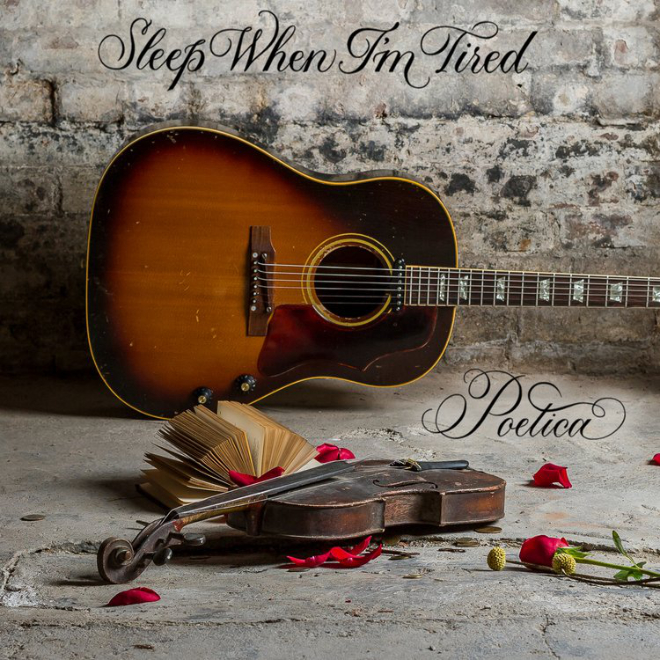
Beginning as a duo collaboration under lockdown between Sage and her longtime cellist Dave Eggar (Esperanza Spalding, Duncan Sheik, Corinne Bailey Rae), Poetica soon evolved into a full-blown, cinematic spoken word album, with Sage producing and engineering the project in isolation with limited gear she happened to have on tour while sending files back and forth to bandmates and guest musicians from every genre. The project was mixed by Grammy-winner Andy Zulla (The Sweet Remains, Stephen Kellogg). From over 200 poems written both during and prior to lockdown, Eggar, whose parents are both poetry professors, volunteered to help Sage select the 18 spoken-word pieces that eventually comprised the album.
Sage explains, “‘Sleep When I’m Tired’ is the only sung piece on Poetica—versus the rest of the album being spoken-word focused material. The reason I included it was because it was composed in real time off the top of my head, as I sang the lyrics over a guitar loop without editing a line or redoing the lead vocal—it was one take, and a rather imperfect, gritty performance but I felt it captured a feeling, in the spirit of the album as a whole. I had been listening to Nick Cave’s ‘The Weeping Song’ earlier in the evening, fell asleep and then decided to build a piece around clapping—which you can hear in the choruses. From there, I added beatboxing and percussion and just tried to capture the essence of profound exhaustion, and the process one goes through trying to emerge from darkness into light.”
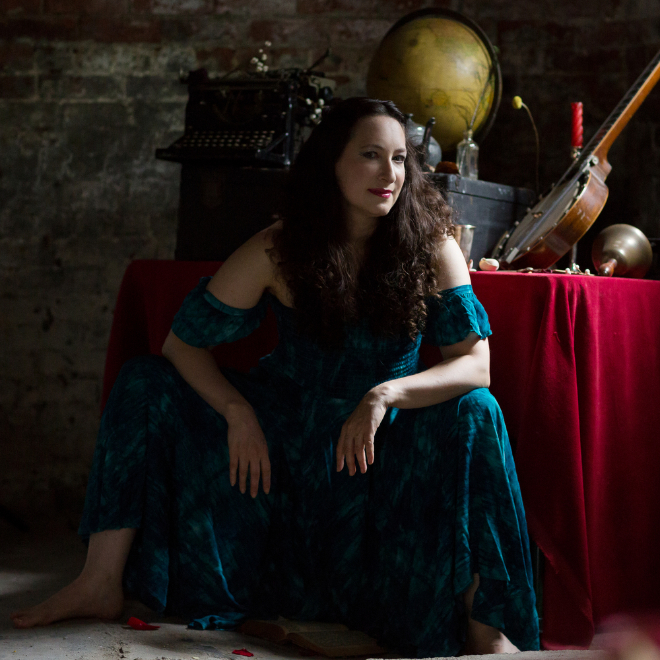
Poetica is simply magical. It evokes images of words splashed across the sky. Rachael Sage has combined her love of music and rhythms with the passion of poetry—a mix that is so powerful that it tugs at the heart and fills the soul.
While Sage’s music sets the stage, her spoken word leaps out—waiting for the listener to hear the subtleties of every carefully chosen word—and feel the emotions that seem so vivid and clear. Take this moment now and give yourself permission to close off the rest of the world and be swept away into Poetica.
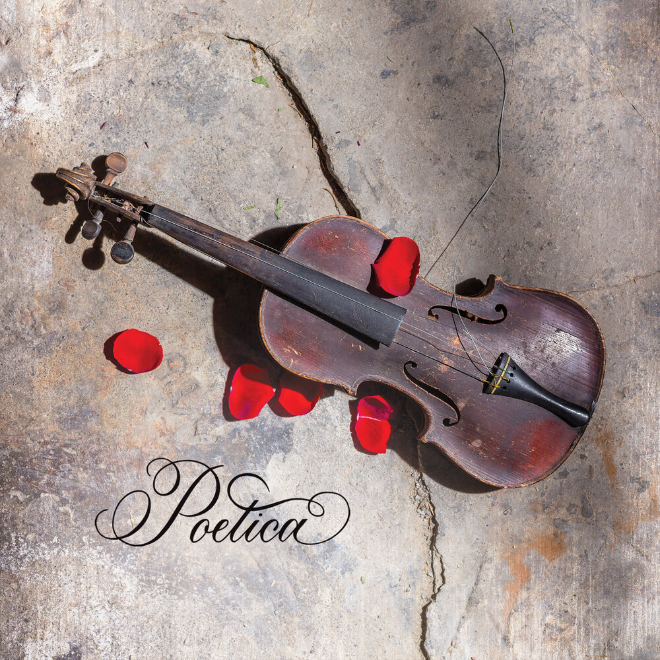
RACHAEL SAGE Interview
with M Music & Musicians magazine publisher, Merlin David
Which track squeaked by and made it onto this collection Poetica?
“Sleep When I’m Tired” theoretically didn’t belong in this collection, because it’s more of a song than a poem. But I included it mainly because of the process that yielded it, which was very organic and reflective of how the rest of the tracks for Poetica evolved. Essentially I recorded a four bar guitar loop, sang one take into a bullet mic of spontaneously written lyric about being exhausted, and kept it as “the take.” Everything else was built around that, and I never even took pen to paper. I was in such a sleepless, loose zone by the time I recorded that track—that it became a sort of musical onomatopoeia. What you hear is exactly what I felt, and it has a certain weight to it because it contains everything I had held in from months of mental and physical exhaustion, along with imagining what frontline workers must have been compartmentalizing—just to be able to keep going under unimaginable stress and duress.
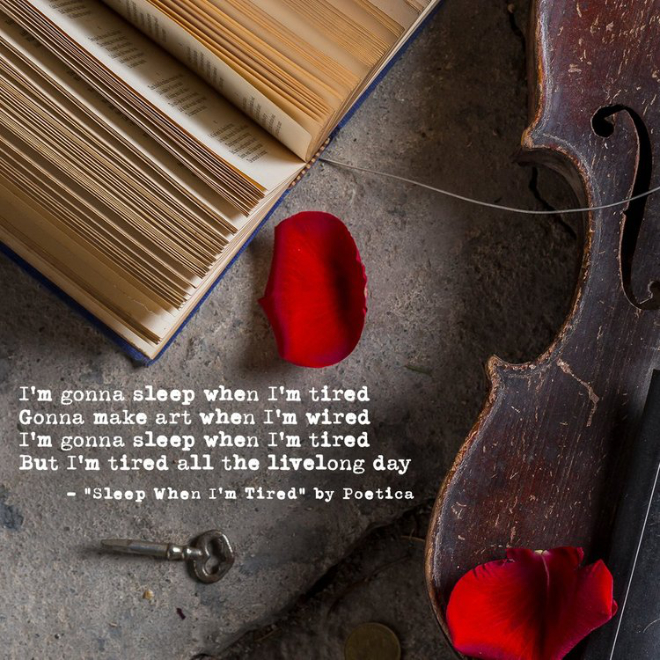
From the variety of diverse musicians on this project, how did you choose the musicians for “Unconditional”?
One of my favorite tracks on the record is “Unconditional.” I wanted it to sound like a combination of a Bollywood soundtrack and gospel—a psychedelic, enveloping blues that slowly bloomed into the feeling of intense devotion. I laid down the percussion and then hummed the main melody behind the spoken word. I knew I wanted Dave to reinterpret that through a lush string arrangement. When he sent it back to me, I was blown away and it was actually too thick and I had to scale it back. But once that was in place, it made it very easy to know who else should be on the track. I invited my longtime violinist Kelly Halloran to help reinforce the string melodies and Russ Johnson to play trumpet. Kevin J. Killen—who played both electric guitar and organ—really brought the arrangement to another level. From there, it was kind of like cooking—other elements were introduced like spices but never overpowering the vocals. I took my time adding the rest of the instruments and by the time Doug Yowell overdubbed an actual drum set against my hand percussion, I knew we were ‘there.’
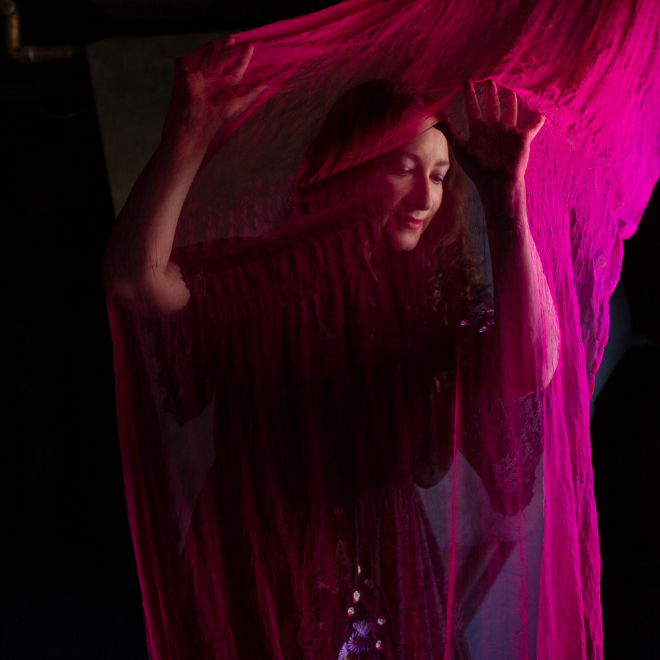
Tell us about a happy accident that happened during this recording.
I never went into an actual studio to record anything for this album—I recorded and edited everything via a single mic and a small interface that happened to be sitting on top of an ironing board I found in the basement of a rental apartment I wound up in during lockdown, as unlikely as that seems. But several musicians did self-record and sent me files. One of them was world-renowned klezmer clarinetist David Krakauer, whose playing and composing I’ve admired for decades. Most artists had sort of a “what do I have to lose” mentality during lockdown and took a lot of risks. So I figured what the hell and emailed him cold—to ask if he’d like to be a special guest. He already knew a few of the other players involved and immediately said yes. It was very encouraging because if I had been working on a pop record that might not have been the case. His playing on “Lower East Side Baby” and “Engagement” is so moving.
How did the idea of “Thanksgiving” come to you?
“Thanksgiving” was an older poem, but once I started playing with percussion grooves and humming the main hook melody it may as well have been a new piece for me. I began with the rhythm, tracked a few passes of the poem as one performance—until I was happy with it. After maybe the third or fourth take, I started doing beatbox tracks and some guitar tracks using my voice to replicate a wah-wah guitar, which I eventually replaced with Walter Parks’ guitar playing. When it was time to do the strings, I had the exact parts hummed already and asked my violinist and cellist to double them, play octaves and essentially build out a Lenny Kravitz-type arrangement. My reference for strings on that was “It Ain’t Over ’Til It’s Over.” I was very happy with how that piece came out, and especially love what Russ Johnson’s trumpet added.
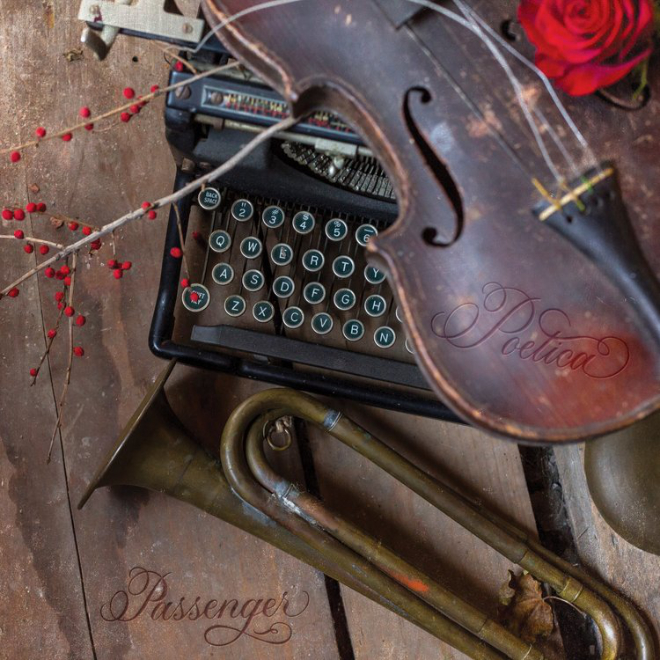
How did the idea for “Passenger” come to you?
I hummed a bass part note for note for “Passenger,” and my friend and bassist from my previous album Character, Mikhail Pivovarov, indulged me by playing the exact same part on electric bass. It was clear I had a blues situation happening, even if my form was a little eccentric. So I leapt at the chance to recruit the brilliant Will Wilde to play harmonica. Philadelphia-based Kevin J. Killen added organ. I told him I wanted it to sound sort of Doors-y and all of that basically set the tone for the rest of the instrumentation. I suppose I wanted it to sound sort of rambly—like someone ambling through life without thinking too far beyond their immediate passionate urges. I was alternately visualizing a train or tumbleweed in the desert and an almost imperceptible repetition of the entire form, twice—which is often the number of times it takes to notice a red flag that’s been there from the beginning of any emotional journey.
How did “Lamentation” come to you and why is this poem important during this unique socio-political time?
There is a tendency during a time of overwhelming social turmoil to want to escape, or speaking for myself personally, to want to create work that helps people to forget their troubles. This piece openly laments and mourns the profound, inconceivable losses caused by a global pandemic. It asks questions through both the text and music, while it’s also a meditation on how historically human beings are capable of rising above even the most horrific tragedy. I wanted the strings to sound funereal and timeless, and Dave Eggar’s cello playing feels very healing to me—which is ultimately what any kind of lamentation does: it allows for catharsis and release, through weeping and acknowledging grief. There are literal and metaphorical layers many people can relate to in this piece, which I’m sure is why Dave Eggar urged me to include it—even though it’s very dark and meditative.

Tell us a “pinch me” moment during the recording of this spoken word album.
When my mixer Andy Zulla and I were mixing in virtual space, in real time via zoom, and he was expressing his excitement for the project as a whole, I started to really feel a sense of deep gratitude that somehow—while in a months-long trance—this work had been birthed. I was able to settle in and enjoy how he was helping me refine the many layers into something more focused and dynamic, while also very much respecting the vibe of the rough mixes. It was a silver-lining of a tumultuous time that a project like this had the latitude to evolve into something much bigger than anticipated, with zero expectations. It was very liberating artistically, at a time when everything as a whole could not have felt heavier and more confounding.
While Rachael Sage’s music sets the stage, her spoken word leaps out—waiting for the listener to hear the subtleties of every carefully chosen word—and feel the emotions that seem so vivid and clear. Take this moment now and give yourself permission to close off the rest of the world and be swept away into Poetica.
What one thing did you learn about yourself after recording Poetica?
I learned that I make better art when I am not pulled in too many directions. I supposed I’ve always known this to a degree, but somewhat been in denial. Now the trick will be to learn how to re-carve the kind of space that I had to create Poetica—when the rest of my responsibilities are in full-swing: my record label, my family obligations and all the other daily things. It shouldn’t have had to take a pandemic to get me into a truly experimental mindset, or to self-engineer, but through the years I became overly reliant on others to help me document even the simplest ideas. It was a kind of laziness or just fear of doing things less than perfectly. But now I know that if left to my own devices, I can be much more resourceful than I imagined. I also learned that I really love playing percussion!
Where can new fans get more info and stay updated?
www.poeticaproject.com
www.rachaelsage.com
www.Facebook.com/rachaelsagepage
www.Instagram.com/rachael_sage
www.Twitter.com/rachaelsage
And I just joined TikTok—lookout!
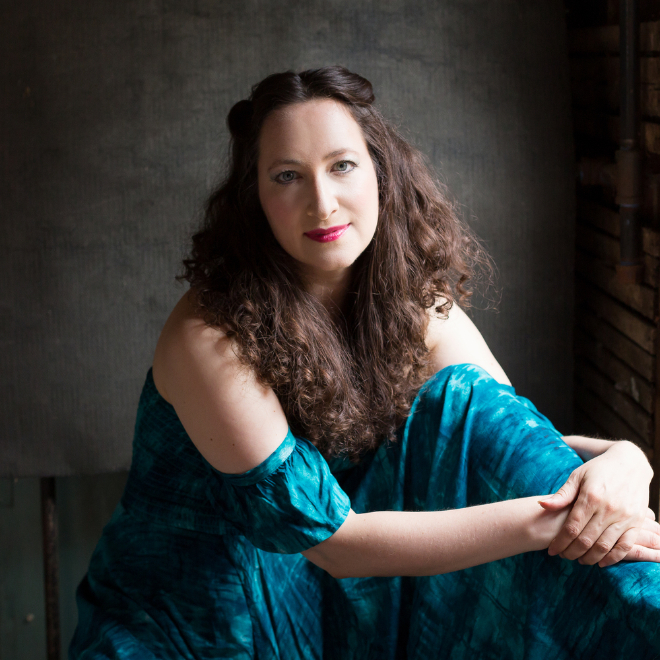
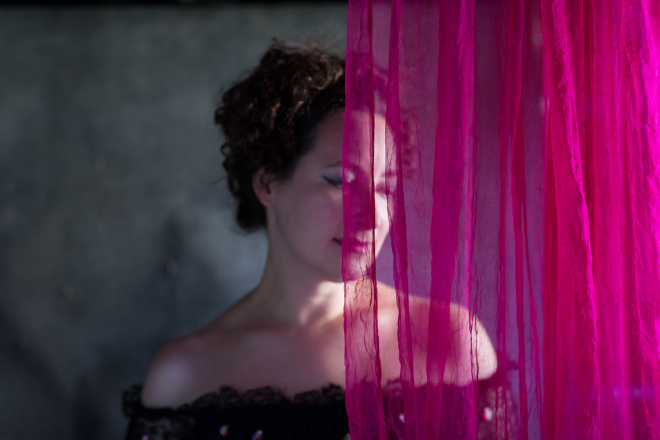
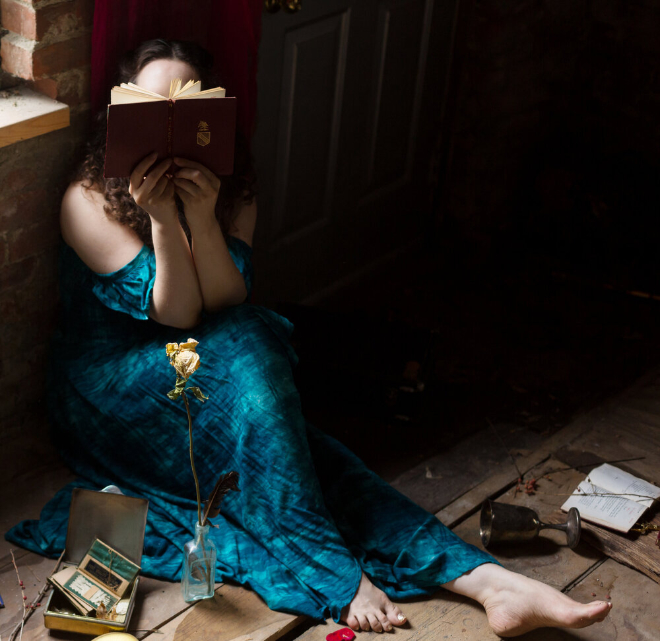



comment closed